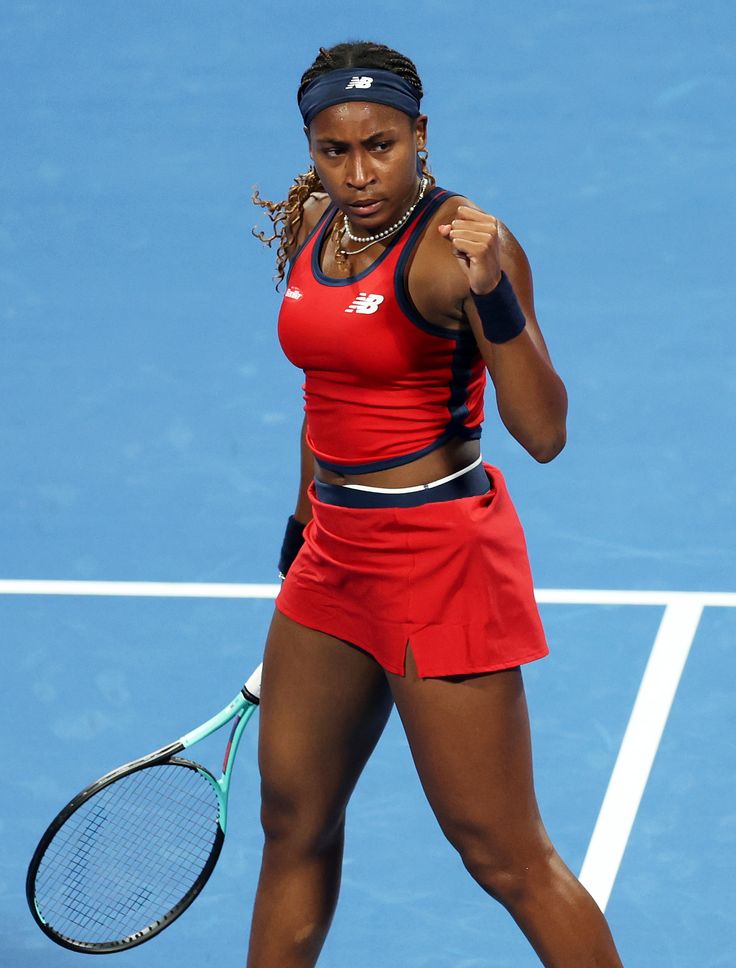Golf’s Image Problem — And Spiranac’s Crusade
Golf has always been a sport steeped in tradition. Etiquette, unwritten rules, and formal attire are often just as important as the score on the card. But for Paige Spiranac, this reverence for old-school norms has begun to cross a line — particularly when it gets in the way of viewer enjoyment or player comfort.
In a recent Q&A with her followers, Spiranac didn’t hesitate when asked what rule she would eliminate from the PGA Tour. With the kind of frankness that has become her trademark, she replied: “The dumbest rule in golf is no music allowed during rounds. Let the players have fun!”
This isn’t the first time she’s clashed with golf’s more conservative culture. Whether it’s attire expectations or outdated broadcasting styles, Spiranac has carved out a niche as a disruptor — someone who’s willing to speak for the new generation of golfers and fans alike.
And in her eyes, banning music during a round isn’t just a weird formality — it’s a sign that the PGA Tour is out of touch with reality.
Why the Music Ban Feels So Outdated
To outsiders, the idea of banning music might seem trivial. But in a world where most recreational golfers hit the course with Bluetooth speakers in tow, the disconnect is glaring.
Spiranac argues that the rule creates an unnecessary barrier between professional players and fans. “Everyone I know listens to music when they play,” she said. “Why are we pretending the pros are above it?”

It’s not just about entertainment either. Music, for many, helps reduce stress, keeps the rhythm of play smooth, and adds a personal touch to the experience. On a deeper level, banning it reinforces golf’s elitist reputation — something Spiranac has fought to dismantle for years.
Her critics might say that tradition should be preserved. But Spiranac’s retort is simple: “Tradition is important, but so is growth.”
A Voice for the New Era
Spiranac’s criticism of the PGA Tour rulebook isn’t coming from a place of malice — it’s born from a desire to make the sport more inclusive, more modern, and more enjoyable.
As someone who’s successfully transitioned from professional golf into mainstream pop culture, she’s become a bridge between traditional golf fans and the digital-native generation who follow her on platforms like Instagram and TikTok.
And make no mistake, her influence is real.
With millions of followers and countless brand partnerships, Spiranac has brought more eyeballs to golf than many current pros. She’s proof that charisma, relatability, and transparency can attract interest — and she’s using that power to nudge the PGA Tour toward change.
The Bigger Picture: Rules That Don’t Make Sense Anymore
While the no-music rule is the one she’s currently blasting, Spiranac’s broader frustration lies with the outdated rigidity of golf’s rulebook. She’s often pointed out other examples that seem completely disconnected from how modern athletes and fans engage with the game:
- Dress codes that are more focused on appearances than performance.
- Slow play being penalized inconsistently.
- Out-of-bounds penalties that punish players excessively.
But music strikes a deeper nerve because it highlights the cultural gap between traditionalists and everyone else. “You want golf to grow? Then stop making it feel like a job interview,” she joked in a recent podcast.
The PGA Tour’s Response — Or Lack Thereof
So far, the PGA Tour has been silent on Spiranac’s critique. But this isn’t the first time the organization has faced calls for reform from high-profile voices. With LIV Golf shaking up the format, introducing team events, and emphasizing player entertainment, the pressure is mounting.
In fact, several players on the LIV circuit have already embraced music on the course — and fans have responded with enthusiasm. Could Spiranac’s criticism accelerate change on the PGA Tour?
If nothing else, it’s forcing a conversation that many in golf’s inner circles would prefer to avoid.
Why This Rule Matters More Than You Think
At first glance, the music debate might seem minor. But it taps into a larger, existential question for golf: Who is the game really for?
Spiranac believes it should be for everyone. For the beginner who slices their tee shot and laughs about it. For the junior golfer trying to have fun instead of chasing trophies. For the casual fan who wants to see athletes enjoying themselves, not just grinding through four-hour rounds in silence.
By eliminating rules that feel more like gatekeeping than guidance, Spiranac argues that golf can finally become the welcoming sport it claims to be.
And in her own way, she’s leading that charge — not with a golf club, but with a platform.
How Fans Are Reacting
Unsurprisingly, Spiranac’s take sparked a flurry of reactions online — from passionate support to eye-rolling resistance. But if there’s one thing both sides agree on, it’s that she’s unafraid to stir the pot.
Many younger fans praised her for addressing an issue they’ve long found frustrating. Others, particularly traditionalists, pushed back, citing concerns over focus and competitive integrity.
But even critics couldn’t ignore the bigger point she was making: golf is facing a reckoning, and the next generation isn’t going to quietly conform.
Paige Spiranac: More Than a Pretty Face
It’s easy for skeptics to dismiss Spiranac based on surface-level assumptions. But those who have followed her career know she’s much more than her Instagram following or athletic wear.

She’s someone who understands the soul of the game, but isn’t afraid to call it out when it’s in danger of becoming irrelevant. She’s vocal about mental health, inclusive representation, and yes — the sheer joy of playing golf with a little background music.
In many ways, she’s the spokesperson golf didn’t know it needed.
Final Thoughts: Is Change on the Horizon?
Whether the PGA Tour changes its music policy tomorrow or in ten years, Paige Spiranac’s impact is already being felt. She’s turning small rules into big talking points. She’s proving that one voice — especially when amplified by millions of followers — can influence an entire sport.
More importantly, she’s reminding the world that golf can be fun, expressive, and alive.
As she continues to call out the “dumbest rules” and rally support for reform, one thing is certain: Paige Spiranac is no longer just part of the conversation.
She is the conversation.
And golf would be wise to listen.


